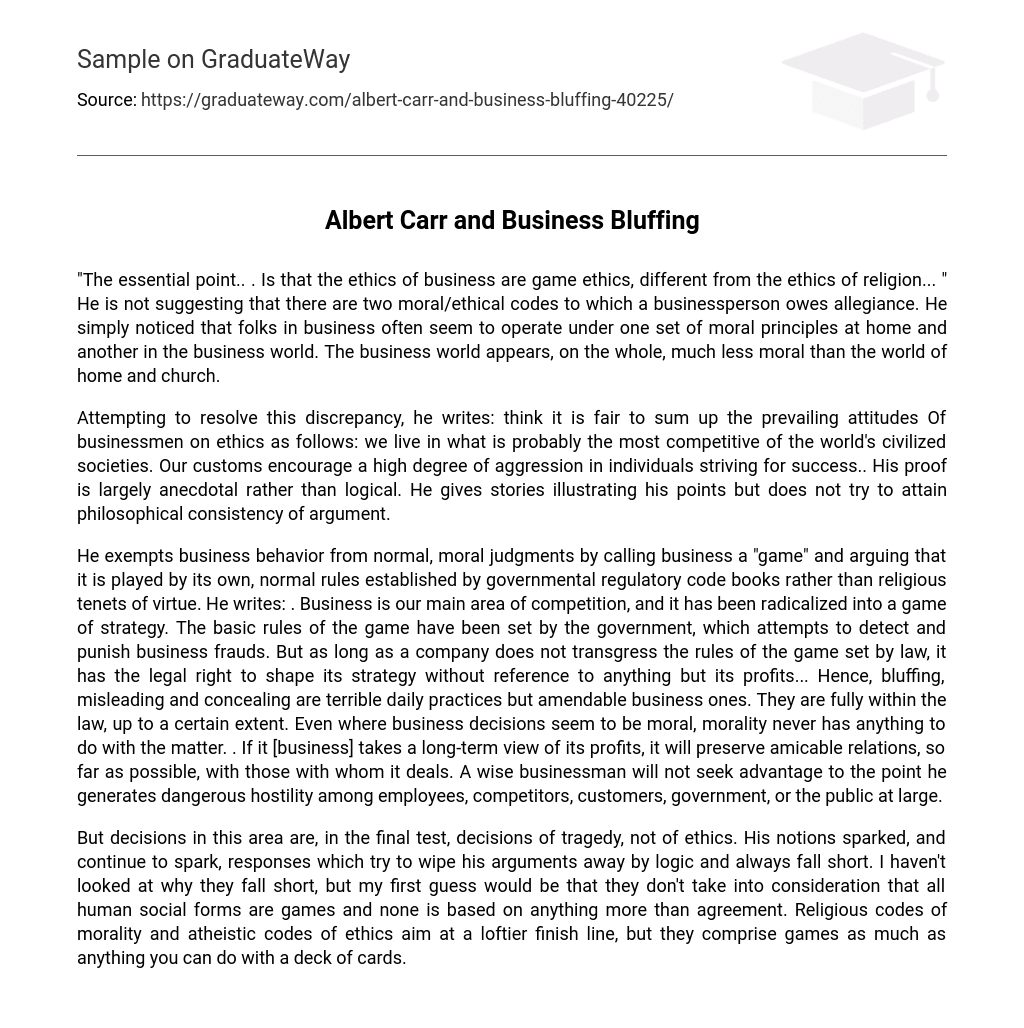“The fundamental idea… is that business ethics are distinct from religious ethics…” The author’s point is not that businesspeople must follow two separate moral codes. Instead, the author notes that individuals in business often have different ethical principles in their personal lives versus their professional lives. In general, the business world is seen as less moral than the realms of home and religion.
To tackle this inconsistency, the author suggests that businessmen’s beliefs about ethics can be summed up as follows: in our competitive society, individuals are encouraged to be aggressive in their pursuit of success. The author supports this claim mainly through anecdotal examples rather than logical reasoning, using stories to illustrate arguments instead of aiming for philosophical coherence.
The writer argues that business conduct should not be evaluated using conventional moral standards. Instead, business is likened to a “game” that follows established rules mandated by government regulations. As long as a company adheres to these rules, it is legally permitted to shape its strategy solely based on profit. Consequently, actions like bluffing, misleading, and concealing information, although morally objectionable, are deemed acceptable in the business realm as long as they remain within legal boundaries. The writer further asserts that morality holds no significance in making business decisions. Nonetheless, it is recommended that businesses take into account long-term profitability and cultivate positive relationships with employees, competitors, customers, government entities, and the public in order to prevent generating detrimental animosity.
But decisions in this area are ultimately tragic, not ethical. His ideas have provoked and continue to provoke responses that attempt to refute his arguments with logic, but always fail. I haven’t examined why they fail, but my initial assumption is that they fail to consider that all human social structures are essentially games, based solely on agreements. Both religious moral codes and atheistic ethical codes strive for higher ideals, but they are also just games, similar to playing cards.





